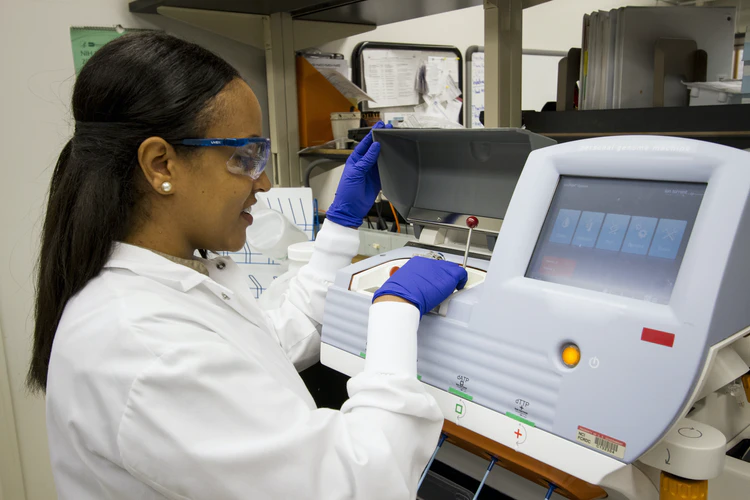
In today's modern technology for treating illnesses which is at times very hard to cure, or close to impossible to reverse, cord blood banking is one of the advancements that scientists have been utilizing over the past thirty years.
Storing the cord's blood and using it as a treatment in the future has been one of the most proven methods to pave the way for effective treatment in improving conditions or ultimately eliminating various diseases that were challenging to treat before the cord's blood discovery.
To expand further, below is what cord blood banking exactly is, and it's usage to achieve its benefits for improving one's health and reversing one's condition.
Cord Blood Banking Explained
Cord blood banking is a unique process of storing blood. It is stored and preserved in what they call a Cord blood bank. The cord blood banking method is to collect the cord blood and extract it from the umbilical cord from a newborn child.
When the birth time is nearing, the mother and the baby's immune system becomes strong and boosted in preparation for the delivery. This process makes the umbilical cord a rich and potent source of stem cells and other kinds of cells that come from the immune system.
To preserve the blood, they use cryogenic freezing to freeze the stem cells and other types of cells that are part of the immune system development, to utilize it for future potential uses, and for medical purposes like treatment of hard to cure diseases.
There was a particular time in the past, before the cord's blood benefits were discovered when the cord's blood and umbilical cord were considered complete medical waste.
But in today's present time, parents now store and preserve the umbilical cord's blood of their baby for the stem cells in the blood are showing promising benefits in treating irreversible, debilitating, and life-threatening conditions and illnesses.
For parents who are expecting to have a baby, they are now able to easily collect blood from the umbilical cord with no hazards or any harm done to the child or the mother. That's why the mother's pregnancy is a perfect time to plan to collect and store the cord's blood in the bank for near future intentions.
Why Cord Blood?
The umbilical cord's blood, also called "placental blood," is the blood left in the placenta and the cord after giving birth to a child. This kind of blood contains unique and special cells called the hematopoietic stem cells currently being used to treat various diseases.
Hematopoietic Stem Cells: The Main Key in Cord Blood
Hematopoietic stem cells are stem cells that can create and renew various types of cells and tissues. These cells can self renew and regenerate. Unlike other cells like the blood cells, nerve cells, and muscle cells, stem cells like the hematopoietic stem cell can replicate several times.
One of the richest sources of hematopoietic stem cells is the umbilical cord blood. The hematopoietic stem cells are essentially responsible for blood replenishment and the regeneration of the immune system.
It also has the natural ability to transform into different types of cells, usually contained in the blood. This type of stem cell is responsible for producing other types of blood cells like the platelets, the red blood cells, white blood cells, and immune cells.
The Medical Benefits Of Cord Blood Banking
As briefly explained above, the cord's blood is known to be showing promises of improvement of one's ill condition, and eventually reversing any life-threatening diseases. To learn more about this, listed below are three classifications of illnesses that cord blood can effectively improve or ultimately reverse.
1. Blood Disorders
In cases where one acquires any blood disorders, cord blood can be used as one of the alternatives for treatment. Blood diseases like sickle-cell anemia, hemophilia, thalassemia, and the like are blood disorders that use umbilical cord blood as an effective method for treatment.
2. Cancers
Cancer is one of the leading causes of death in the whole world; that's why cord blood is being applied as an alternative for treating various kinds of cancer.
Cancers like acute lymphoblastic leukemia, acute myeloid leukemia, and the like are cancers where cord blood is used.
3. Immunodeficiencies
Immunodeficiencies like adenosine deaminase deficiency, severe combined immune deficiency, etc., are some types of immunodeficiencies which are treated using cord blood.
Severe combined immune deficiency or SCID, for example, is one of the most lethal diseases that infants may acquire. And collecting and storing the cord blood beforehand is one of the best preventive measures that parents can do for their child.
Takeaway
With the knowledge and benefits mentioned above about cord blood for one's health and well-being, cord blood banking is undoubtedly one of the best ways to implement, especially for cases like expectant parents. Suggesting this to other expectant parents is also an excellent idea for everyone to benefit from it in the long-term and near future.
© 2025 NatureWorldNews.com All rights reserved. Do not reproduce without permission.





